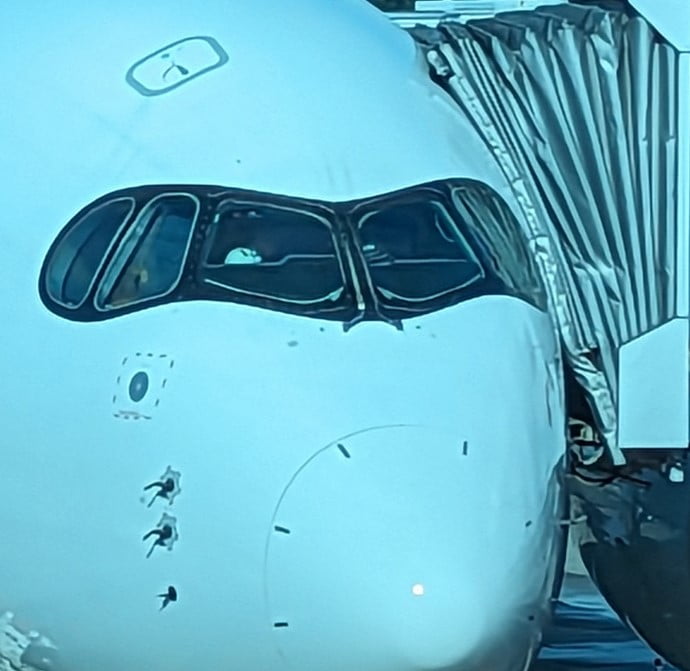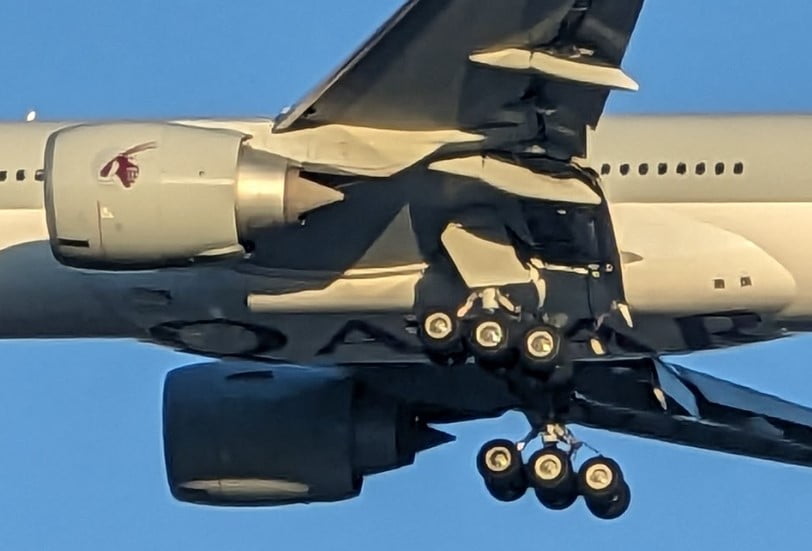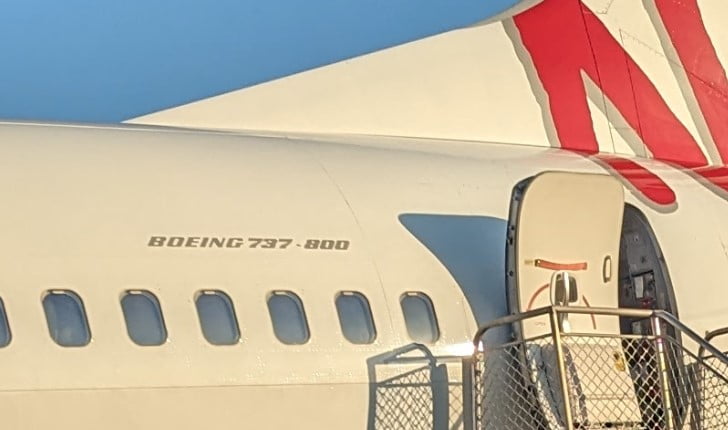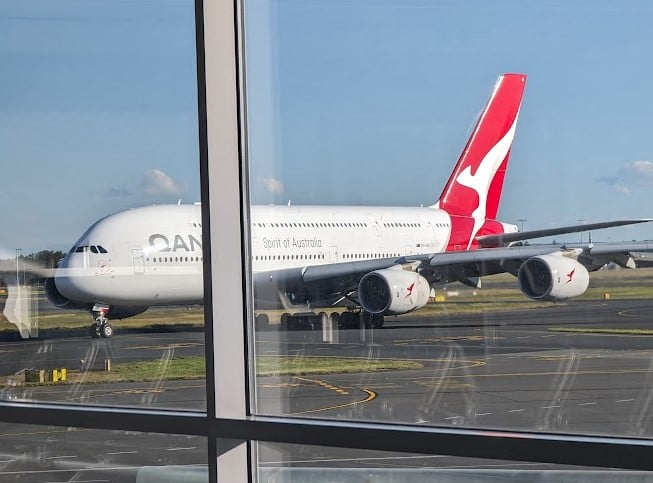Over the years, several industries have embraced quantum computing (QC). In a 2022 report, 74% of enterprise leaders say they plan to adopt quantum technology in 2022. The aerospace industry is no exception because industry players are experimenting with the next-gen technology in partnerships with renowned QC firms.

The proponents of quantum technology opine that it can revolutionise the industry in many profound ways. First, they strongly believe that it holds the potential to expedite complex simulations and calculations that consume so much time and resources in today’s conventional computing. These QC experts argue that once aerospace players implement quantum technology, the industry will witness faster development of aerodynamic profiles, structural optimisation, and flight mechanic simulations. In the end, there will be improved fuel efficiency and lowered emissions. No doubt, this will a plus!
Furthermore, the disruptive technology can come in handy in securing telecommunication channels. With growing concerns that QC systems can undermine today’s cryptographic algorithms, aerospace engineers must adopt the technology to secure their communication channels. They have to incorporate quantum-safe encryption methods to protect sensitive data transmitted within the industry, especially for military aeroplanes and other cybersecurity-critical aeroplanes. By leveraging quantum principles, quantum communication guarantees secure data transfer and could bring about unbreakable encryption methods that guarantee round-the-clock information security and confidentiality.

Thirdly, sensing and communication. Truly, quantum technology offers highly precise measurements of various physical quantities, including frequency, acceleration, rotation rates, and electric field and magnetic field. Once the new technology determines the accurate acceleration measurement through quantum sensors, one can calculate the precise position of objects and flights. Given how important accuracy is in the industry, all aerospace players must explore quantum technology. Once they get it right, they can integrate quantum sensors into aeroplanes and navigation systems, achieving much more accurate positioning and safer flights, and optimising air traffic management.
3 Use Cases of Quantum Computing in the Aerospace Industry
Having broadly discussed the three aspects that quantum technology can improve the aerospace industry, let’s review three industry players that are taking the bull by the horns to explore the cutting-edge technology.
Airbus SE
Formerly EADS, Airbus was established in 2000 from the merger of German DaimlerChrysler Aerospace, French Aerospatiale Matra and Spanish CASA. Given the capacities of the companies that formed the aerospace company, it became the world’s biggest aeroplane manufacturer. In June 2020, the France-headquartered aircraft company announced that it was exploring the possibility of using quantum technology to improve its operations. The aeroplane manufacturer believes that the rapidly evolving technology will enhance its production and aircraft performance.

To clarify the areas the company intends to deploy quantum computing, Paolo Bianco, Airbus Global Research and Technology Cooperation Manager, disclosed that quantum technology would play a key role in communication, computing and sensing. The company also stated that it hopes to develop a robust, future-proof infrastructure based on security-enhancing quantum information technologies, such as algorithms, authentications and keys. It also demonstrated its readiness to make the innovative technology a key component of its high-performance computing (HPC) projects by announcing the Airbus Quantum Computing Challenge. Ahead of the challenge, Airbus identified five distinct flight physics problems and sought QC solutions to them.
The world’s leading aeroplane maker pointed out that it was interested in collaborating with the QC industry players and enthusiasts to build a system that will serve the two partners. Responding to the partnership call, IonQ struck a deal with Airbus in August 2022. The collaboration will see them focus on how quantum technology can improve fuel consumption and cargo loading. The plan, known as the Quantum Aircraft Loading Optimisation and Quantum Machine Learning project, would run for one year. During the prototype-based study, IonQ intends to train engineers to learn how to apply the innovative technology to enhance Airbus operations. Since the outbreak of the COVID-19 pandemic and the Russia-Ukrainian conflict, the world has witnessed significant disruptions to the food supply chain, so IonQ hopes to use the new initiative to improve cargo loading turnaround in order to address the supply chain crisis. In the near future, Airbus looks to use quantum technology to improve other areas of air travel, including reduced fuel consumption, better aerodynamics, and optimised trajectories.
Boeing Company
If you have ever travelled from one city to another by air, chances are you flew to your destination on a Boeing aeroplane. That’s because Boeing is by far the world’s biggest commercial aeroplane manufacturer by planes already delivered. One of the most talked about aeroplanes in Boeing’s fleet is the 787 Dreamliner. The aircraft gained global traction because Boeing built it with advanced materials known as ply composites, making it lightweight, safe and strong aircraft. On top of that, the aerospace innovation that goes into the aircraft makes it consume less fuel and fly farther distances than those designed and built before it. However, designing and building aircraft that display these mind-blowing features comes with a complex problem. For instance, a ply-composite airline of this magnitude has long strands of durable materials layered across one another, thus showcasing its engineering wizardry.

Another challenge that Boeing engineers have to deal with is adding up about 100,000 variables. To add insult to injury, classical computers don’t have the computational power to easily tackle this challenge. More often than not, the engineers would resort to breaking up the puzzles into smaller bits to facilitate its easy simulation. Afterwards, they put the pieces together to achieve their goal. However, the process often requires extra time and resources. To find a lasting solution to this simulation challenge, Boeing has teamed up with the world’s leading universal gate quantum computer maker, IBM. So, IBM is currently experimenting with lots of variables. The Boeing and IBM teams see a huge prospect in the collaboration and have demonstrated how they would make headway in using the cutting-edge technology to solve aerospace drawbacks. By applying optimisation, they have run the largest binary optimisation problem that QC experts have ever run with a quantum computer.
RTX Corporation
Founded in 2020, RTX Corporation is an American multinational corporation based in Arlington, Virginia. It was formerly known as Raytheon Technologies Corporation before the name change. RTX is an aerospace and defence manufacturer and provides a large intelligence service. The corporation manufactures aircraft engines, avionics, aerostructure, cybersecurity solutions, guided missiles, air defence systems, drones, and satellites. Quantum technology is at the core of its operations. Plus, RTX’s subsidiaries are Collins Aerospace, Pratt & Whitney, Raytheon Intelligence & Space, Raytheon BBN, and Raytheon Missiles & Defence. In fact, RTX Corporation has developed custom microwave hardware to enable the company to build a stable qubit using superconducting circuits. The hardware is known as the Arbitrary Pulse Sequencer (APS). The Virginia-based company has significantly invested in developing algorithms in key areas: quantum walk algorithms for solving optimisation issues and quantum algorithms for physics simulations. Other areas where RTX Corporation has interests include using quantum materials to improve its products and deploying quantum devices and sensors.
Founded in 2018 and based in North Carolina, Collins Aerospace, a subsidiary of RTX Corporation, specialises in designing, manufacturing, and servicing systems and components of commercial planes, business aviation, airports, space and other relevant industries. In 2022, Collins Aerospace signed an agreement to collaborate with UK-based PQShield, a post-quantum cryptography company. By this agreement, the QC company will help Collins Aerospace and its parent company to meet their objective of incorporating QC capabilities in engineering aerospace products and services. Still, the partnership will see them develop the proof-of-concept integration of post-quantum cryptography solutions. To be clear, post-quantum cryptography or quantum-resistant cryptography means developing cryptography systems that are secure against attacks on both classical and quantum computers, thereby interoperating with the existing communication protocols and networks.
Conclusion
To wrap up this piece, we have discussed three aerospace companies deploying quantum technology to enhance their products and operations. Nonetheless, the list is not exhaustive. Other aerospace industry players that have embraced QC systems in recent times are Rolls Royce, Honeywell, L3Harris, Leonardo, Northrop Grumman, General Electric (GE), etc. It is heartwarming to see that all these aerospace companies have queued up to embrace the transformative technology. The results of all these research-and-development efforts will give us a clearer picture of how quantum technology will practically revolutionise their industry.

In addition to the points dissected earlier, since safety is a watchword in the aerospace industry, the application of quantum machine learning and simulation is critical. Therefore, aerospace engineers should apply it through machine learning and physical system simulation. That’s particularly because quantum machine learning (QML) algorithms can detect anomalies (fault and defect detection) more reliably and instantly, making it better than we have today. Afterwards, we will have better predictive maintenance and manufacturing defect detection. All this matters in a safety-critical industry like the aerospace industry. With what we have seen so far, there’s no gainsaying that quantum computing will have a transformative impact on the aerospace industry sooner rather than later.
